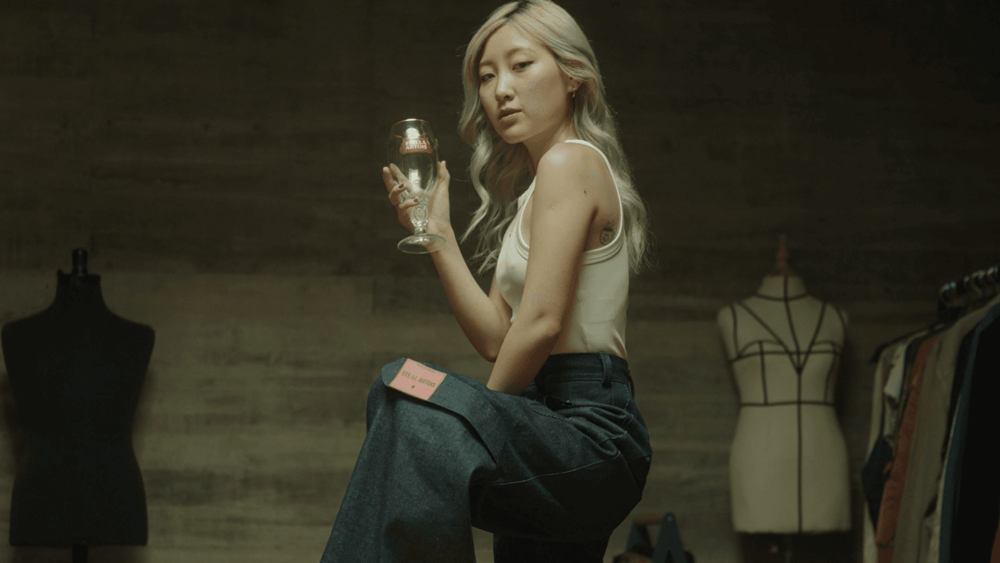Campaign of the Week
Stella Artois designs clothes to help customers steal its glasses /
Brewer launches released clothing line with hidden pockets so people can sneak its glasses out of bars
For many beer brands, learning that your glasses are regularly stolen from pubs might seem like something to stop rather than encourage. However, a campaign by AB InBev-owned brand Stella Artois spurred on its fans to keep up the behaviour every once in a while.
The brand launched a limited-edition range of clothing, supposedly designed to make the theft of its glasses a little less conspicuous. Five branded garments were created for the Steal Artois collection, including deep-pocketed jeans and jackets, and a bucket hat that doubles as a bag.
A tongue-in-cheek ad promoted the creative ways that each piece can conceal a Stella Artois chalice.

The integrated campaign was produced by VML, Santiago, together with David, New York, and also included digital, outdoor, social media and print pieces. The activations on social media encouraged people to confess their crime by sharing a picture of the chalice they had stolen.
The brand directed fans to a dedicated website where they could enter a competition to get their hands on the items. Applications for the garments were open to fans anywhere in the world and closed on 31 January.
Contagious Insight /
Glass half full / As far as the brand is concerned, if people are going to drink from a beer glass at home, it would be better if it was Stella Artois – the more people who steal Stella Artois glasses, the more salient the brand becomes through the exposure it gets inside their homes. It may be poor pub form, but it makes perfect sense for Stella to encourage pinching pints. It also helps the brand emphasise a playful personality that Stella Artois has admitted to chasing in recent years. In a press release, Raimundo Undurraga, CCO of VML Chile, said: ‘We are happy to display such a significant truth on screen in such a bold manner: by celebrating those who have borrowed a Stella Artois chalice from a bar rather than punishing them. Recognising them as brand fans and inviting them to continue doing so playfully, and freshly aligned with the new tone and style of Stella Artois.’
Unlike the Palace Artois campaign in the UK and US that saw Stella Artois partner with streetwear brand Palace Skateboards, the clothing plays more of a secondary role in this campaign. For the brand’s biggest fans it still provides an opportunity to get hold of limited-edition merchandise, but more generally it helps the brand tell a tongue-in-cheek story that strengthens its new personality. In the past, luxury fashion brand Diesel adopted a similarly playful approach to a negative behaviour. Aware of the trend for people to wear its products once and send them back after for a full refund, Diesel launched a series of event parties that were only accessible to those who sported the product tags on the outside of their clothes – leading to a 24% increase in sales.
Reassuringly exploited / By claiming in the ad that its chalice glasses are the most stolen of all beer glasses, Stella Artois is able to put one of its distinctive assets front and centre, while simultaneously emphasising how widely its brand is desired. For Stella Artois’ glasses to be constantly thieved, its beer has to be consistently consumed, evidencing the reassuring popularity of the product.
This approach rides on our innate bias to seek social proof – the idea that we use the behaviour of others to decide what must be correct or good. In other words, we love to follow a crowd. For many brands, exercising this bias means sharing customer reviews or boasting star ratings. However, actions speak louder than words. By building a whole campaign around the regularity with which Stella Artois’ beer is consumed and its glasses are stolen, the brand suggests ‘our beer is chosen by millions and we wouldn’t blame you for wanting to steal our glasses’.
It’s not the first time that the brand has leaned on its widespread popularity to speak to its quality. The 2023 Cannes Lions Grand Prix winning campaign The Artois Probability used an algorithm to assess the likelihood that beers depicted in some of the world’s most famous paintings in history are actually Stella Artois. Able to date its heritage back to 1366, it was a smart way for the brand to say ‘people have been choosing to drink our beer for 650 years, there’s a good chance you might like it too’.
Want more of the same? /
We don’t just write about best-in-class campaigns, interviews and trends. Our Members also receive access to briefings, online training, webinars, live events and much more.







